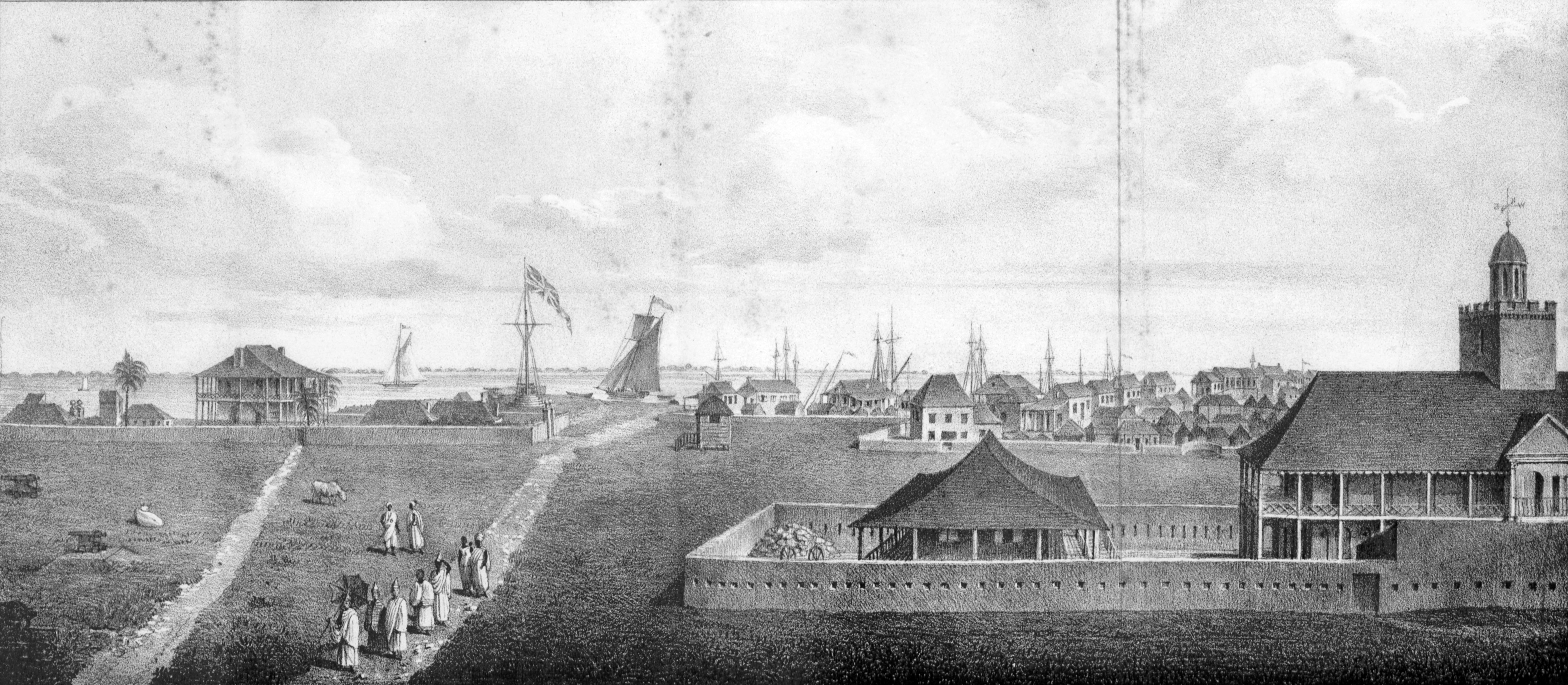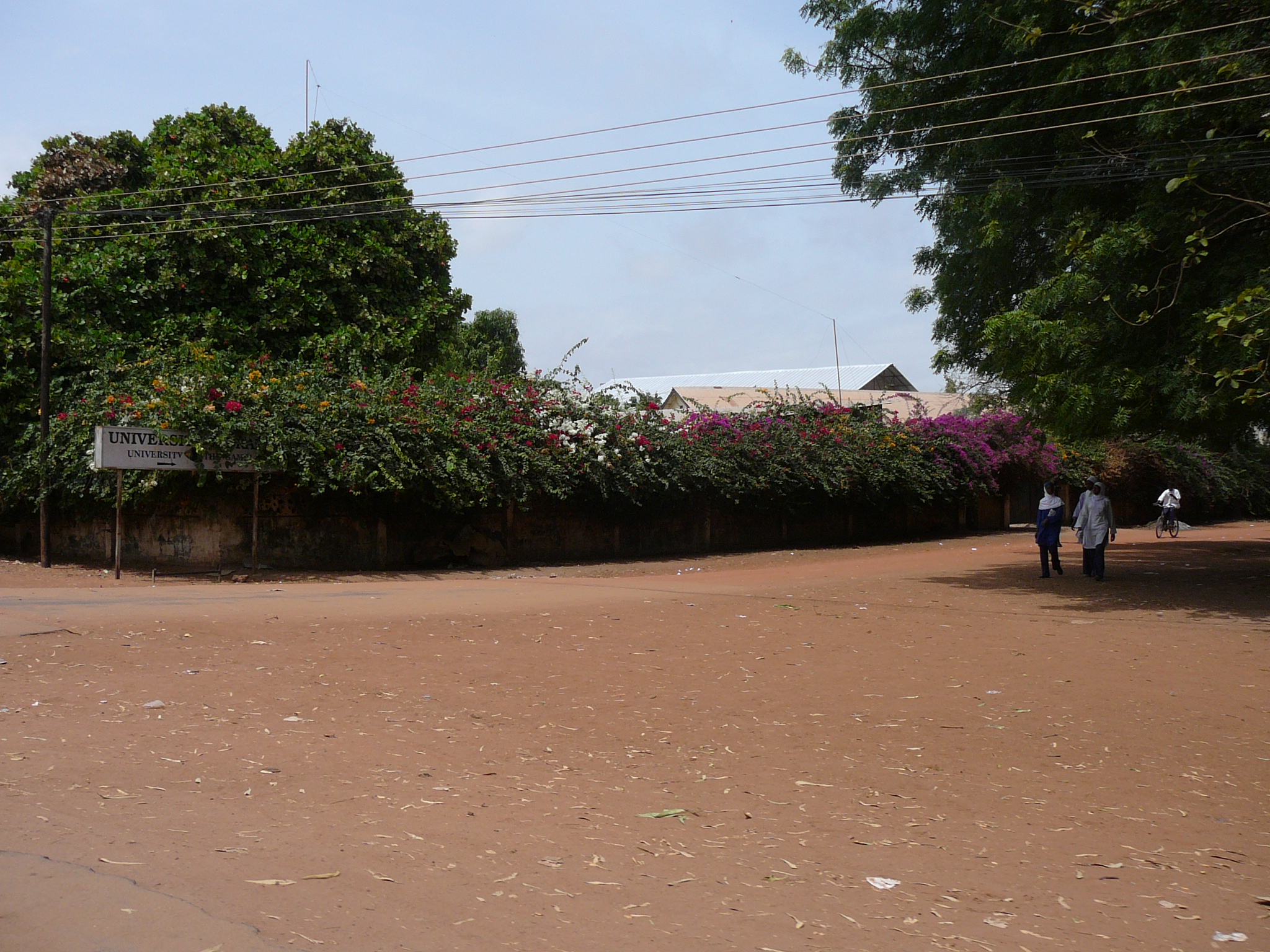|
Saja Taal
Alieu Badara Saja Taal (March 22, 1944 – April 2, 2014) was a Gambian academic and politician. Taal was born in Banjul. He completed his high school education at Methodist High School before receiving his B.A.(hons) and M.A. degrees at the University of New England, Australia and a PhD at Massey University, New Zealand. After completing his education, Taal went into politics, becoming a permanent secretary in the Ministry of Tourism, Office of the President, and Ministry of Education. Taal lectured in the areas of political science, management, public administration and tourism at the University of the Gambia. He published several academic papers, such as the influential "Pan-Africanism - An African liberation ideology against the domination of Africans by Whites". From 2005 to 2007 Taal was the managing director of The Daily Observer. It was during his term as director that journalist Ebrima Manneh disappeared without a trace. Taal provided criticism for refusing to comment ... [...More Info...] [...Related Items...] OR: [Wikipedia] [Google] [Baidu] |
Banjul
Banjul (,"Banjul" (US) and ), officially the City of Banjul, is the capital and fourth largest city of . It is the centre of the eponymous administrative division which is home to an estimated 400,000 residents, making it The Gambia's largest and most densely populated metropolitan area. Banjul is on St Mary's Island (Banjul Island), where the enters the < ... [...More Info...] [...Related Items...] OR: [Wikipedia] [Google] [Baidu] |
The Observer
''The Observer'' is a British newspaper published on Sundays. It is a sister paper to ''The Guardian'' and ''The Guardian Weekly'', whose parent company Guardian Media Group Limited acquired it in 1993. First published in 1791, it is the world's oldest Sunday newspaper. History Origins The first issue, published on 4 December 1791 by W.S. Bourne, was the world's first Sunday newspaper. Believing that the paper would be a means of wealth, Bourne instead soon found himself facing debts of nearly £1,600. Though early editions purported editorial independence, Bourne attempted to cut his losses and sell the title to the government. When this failed, Bourne's brother (a wealthy businessman) made an offer to the government, which also refused to buy the paper but agreed to subsidise it in return for influence over its editorial content. As a result, the paper soon took a strong line against radicals such as Thomas Paine, Francis Burdett and Joseph Priestley. 19th century In 180 ... [...More Info...] [...Related Items...] OR: [Wikipedia] [Google] [Baidu] |
University Of The Gambia
The University of the Gambia (UTG) is an institution of higher education located in Sere Kunda, the largest city in the Gambia. History The campus was founded in 1998 in Kotu-Kanifing, a suburb of Sere Kunda. It was not until March 1999 that the UTG started to offer courses, following a law passed by the National Assembly of the Gambia. In 1999, 300 students are reported to have been enrolled. As of 2002, the number of academic staff was 44. In 2006, nearly 2000 students were enrolled. The Gambian government has planned to create a new campus at Faraba Banta. Schools The UTG is composed of several schools (or faculties) : *School of Agriculture and Environment Sciences, Brikama *School of Arts and Sciences, Faraba *School of Business and Public Administration *School of Education *Faculty of Law *School of Journalism and Digital Media, Kanifing *School of Engineering and Architecture *School of Medicine and Allied Health Sciences *School of Information Technology and Commun ... [...More Info...] [...Related Items...] OR: [Wikipedia] [Google] [Baidu] |
The Daily Observer
''The Daily Observer'' is a newspaper published in Bakau in Banjul, the Gambia. The paper, Gambia's first daily newspaper,Gabriel I. H. Williams, ''Liberia: the heart of darkness'', Trafford Publishing, 2002, p.333 was founded by Mae Gene and Kenneth Best in 1990. Kenneth Best had previously managed another paper called the ''Daily Observer'' in Liberia, until the First Liberian Civil War caused him to relocate with his family to the Gambia. In October 1994, following Yahya Jammeh's military coup, Best was expelled from Gambia, although the newspaper was allowed to continue. It was eventually shutdown by tax authorities on 23 August 2017 for non-compliance of its tax obligations. In the early 1990s, the paper ran its ''History Corner'' on its weekend supplement (the Weekend Observer). The Gambian statesman and historian Alieu Ebrima Cham Joof "pioneered" this column (the ''History Corner'') in 1993 before asking the paper's resident journalist Hassoum Ceesay to take over the col ... [...More Info...] [...Related Items...] OR: [Wikipedia] [Google] [Baidu] |
Ebrima Manneh
Ebrima B. Manneh (February 18, 1978 –2008?) was a Gambian journalist who was arrested in July 2006 and secretly held in custody. In March 2019 the Gambian newspapers ''The Trumpet'' and " The Point" newspaper reported that Manneh died in mid-2008 while being taken from a police station to the Diabugu Batapa hospital. It is said that he was buried behind the local police station. Background A '' Daily Observer'' reporter, Manneh was reportedly arrested by state security after attempting to republish a BBC report criticizing President Yahya Jammeh shortly before an African Union meeting in Banjul; his arrest was witnessed by coworkers. Though ordered to release Manneh by an Economic Community Of West African States court, the Gambian government has denied that Manneh is imprisoned. According to AFP, an unnamed police source confirmed Manneh's arrest in April 2009, but added he believed Manneh "is no longer alive". In June 2009, Manneh received the Special Award for journalis ... [...More Info...] [...Related Items...] OR: [Wikipedia] [Google] [Baidu] |
Dakar
Dakar ( ; ; wo, Ndakaaru) (from daqaar ''tamarind''), is the capital and largest city of Senegal. The city of Dakar proper has a population of 1,030,594, whereas the population of the Dakar metropolitan area is estimated at 3.94 million in 2021. The area around Dakar was settled in the 15th century. The Portuguese established a presence on the island of Gorée off the coast of Cap-Vert and used it as a base for the Atlantic slave trade. France took over the island in 1677. Following the abolition of the slave trade and French annexation of the mainland area in the 19th century, Dakar grew into a major regional port and a major city of the French colonial empire. In 1902, Dakar replaced Saint-Louis as the capital of French West Africa. From 1959 to 1960, Dakar was the capital of the short-lived Mali Federation. In 1960, it became the capital of the independent Republic of Senegal. History The Cap-Vert peninsula was settled no later than the 15th century, by the Lebu peop ... [...More Info...] [...Related Items...] OR: [Wikipedia] [Google] [Baidu] |
Liver Infection
The liver is a major organ only found in vertebrates which performs many essential biological functions such as detoxification of the organism, and the synthesis of proteins and biochemicals necessary for digestion and growth. In humans, it is located in the right upper quadrant of the abdomen, below the diaphragm. Its other roles in metabolism include the regulation of glycogen storage, decomposition of red blood cells, and the production of hormones. The liver is an accessory digestive organ that produces bile, an alkaline fluid containing cholesterol and bile acids, which helps the breakdown of fat. The gallbladder, a small pouch that sits just under the liver, stores bile produced by the liver which is later moved to the small intestine to complete digestion. The liver's highly specialized tissue, consisting mostly of hepatocytes, regulates a wide variety of high-volume biochemical reactions, including the synthesis and breakdown of small and complex molecules, man ... [...More Info...] [...Related Items...] OR: [Wikipedia] [Google] [Baidu] |
Gambian Politicians
Gambian may refer to: * Something of, from, or related to the country of the Gambia * Gambian people, a person from the Gambia, or of Gambian descent * Culture of the Gambia * Gambian cuisine See also * *Languages of the Gambia In The Gambia, Mandinka is spoken as a first language by 38% of the population, Pulaar by 21%, Wolof by 18%, Soninke by 9 percent, Jola by 4.5 percent, Serer by 2.4 percent, Manjak and Bainouk by 1.6 percent each, Portuguese Creole by 1 perc ... {{disambiguation Language and nationality disambiguation pages ... [...More Info...] [...Related Items...] OR: [Wikipedia] [Google] [Baidu] |
Academic Staff Of The University Of The Gambia
An academy (Attic Greek: Ἀκαδήμεια; Koine Greek Ἀκαδημία) is an institution of secondary or tertiary higher learning (and generally also research or honorary membership). The name traces back to Plato's school of philosophy, founded approximately 385 BC at Akademia, a sanctuary of Athena, the goddess of wisdom and skill, north of Athens, Greece. Etymology The word comes from the ''Academy'' in ancient Greece, which derives from the Athenian hero, ''Akademos''. Outside the city walls of Athens, the gymnasium was made famous by Plato as a center of learning. The sacred space, dedicated to the goddess of wisdom, Athena, had formerly been an olive grove, hence the expression "the groves of Academe". In these gardens, the philosopher Plato conversed with followers. Plato developed his sessions into a method of teaching philosophy and in 387 BC, established what is known today as the Old Academy. By extension, ''academia'' has come to mean the accumulation, d ... [...More Info...] [...Related Items...] OR: [Wikipedia] [Google] [Baidu] |




